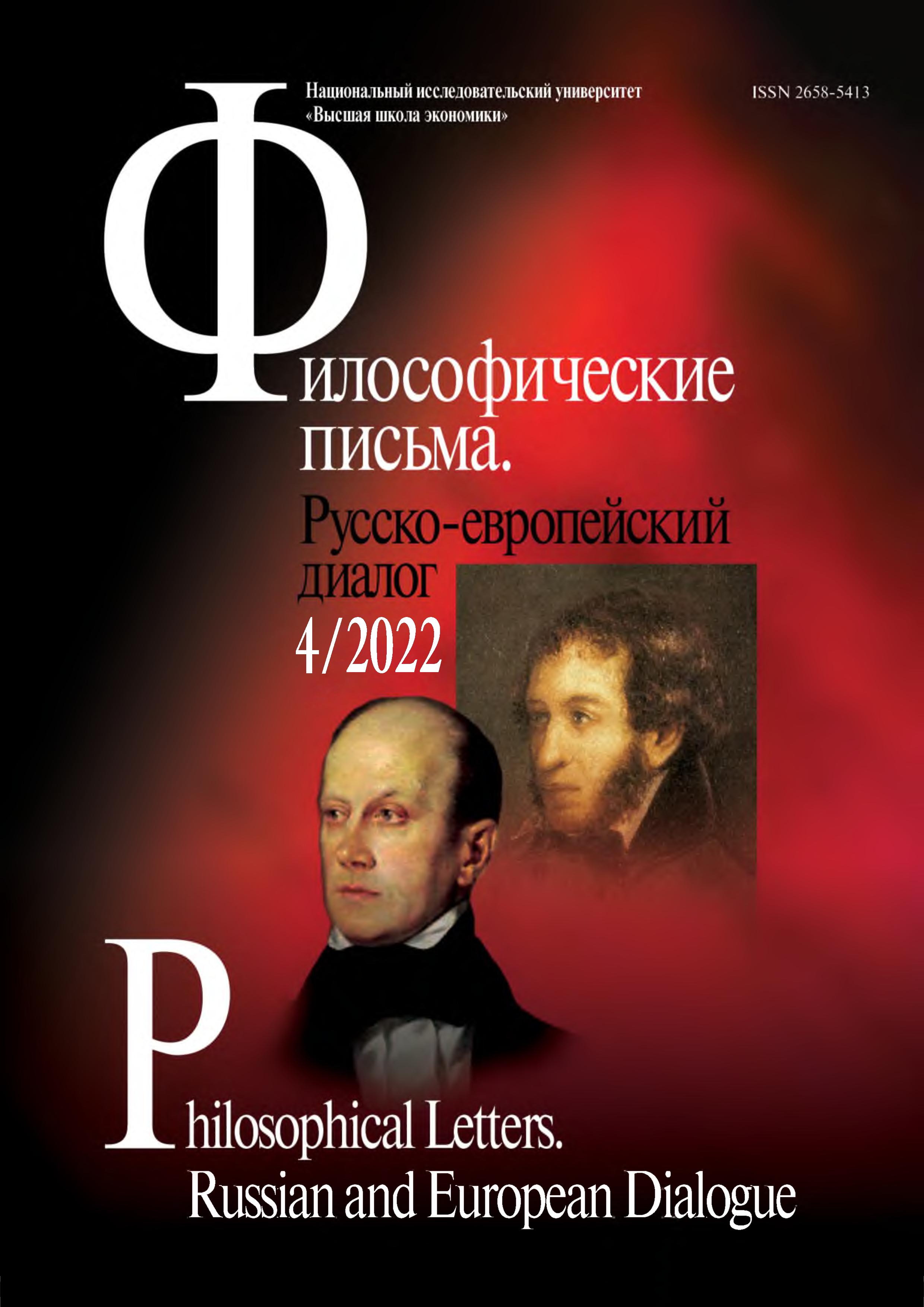G. G. Shpet: Knowledge about a Person as an Interdisciplinary Problem in the Context of European Philosophy
Abstract
The article deals with the fi eld of knowledge about a person as an integrity in the philosophy of Gustav Gustavovich Shpet (1879–1937) in the process of including in his research the problems of various humanitarian disciplines and subject areas of philosophical knowledge. Entry into the new synthesis of the early twentieth century, centered around the phenomenon of man, was determined, on the one hand, by the development of Shpet’s own methodological position on the logical foundations of historical knowledge, where much attention was paid to a critical analysis of the traditions and schools of European philosophy from the 18th to the beginning of the 20th century; on the other hand, the development of arguments related to the development of psychology, its status, methods and place in the history of scientific knowledge about a person, as well as its capabilities in practical knowledge of both empirical science and socio-humanitarian objectivity, with the prospects of pedagogical research, art as knowledge person, language, etc. By the early 1920s, the scientific results obtained by Shpet in these two areas made it possible to present a powerful project of “scientific philosophy”, which formed the basis of the Institute of Scientific Philosophy (1921–1923) headed by him. The little time that he had as a leader left in the archives plans and such thematic turns, which in subsequent years Shpet developed in his own research, as independent objects, but held together by a holistic understanding of man.

